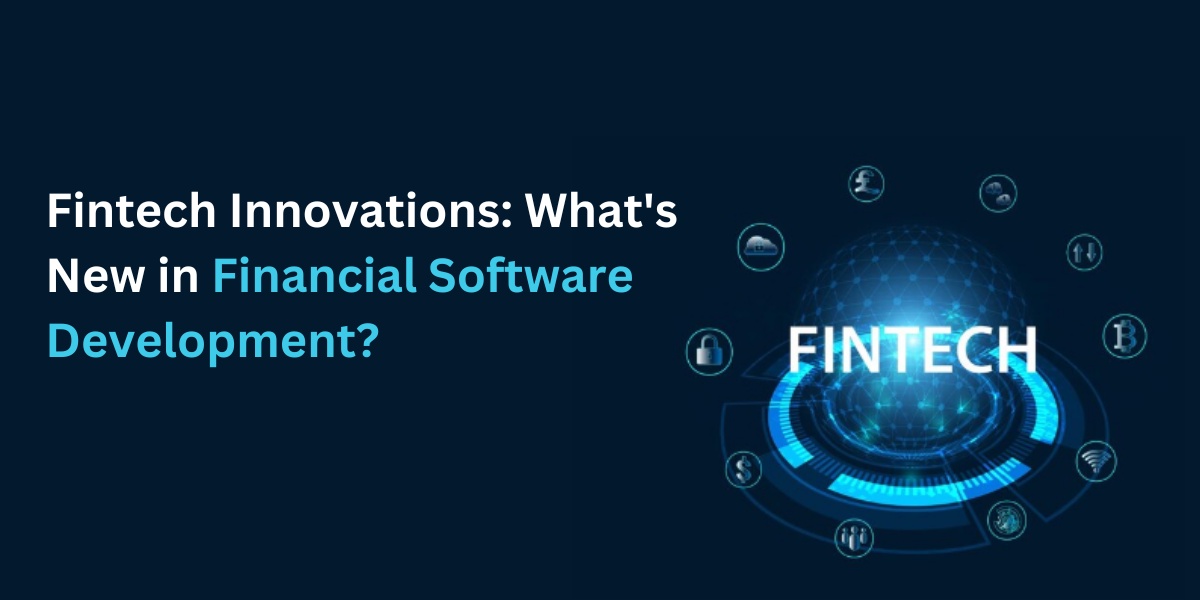In today's rapidly evolving digital landscape, the realm of financial technology, or fintech, continues to undergo revolutionary transformations. Fintech innovations have become the cornerstone of modern financial services, reshaping traditional banking, investment, and payment systems. Among the driving forces behind this paradigm shift is the relentless advancement in financial software development. But what exactly is fintech software, and how is it revolutionizing the industry?
What is Fintech Software?
Fintech software encompasses a wide array of technological solutions designed to enhance and streamline financial processes. From mobile banking applications to algorithmic trading platforms, fintech software empowers individuals and businesses to manage their finances more efficiently and effectively. Unlike traditional banking systems, which often rely on outdated infrastructure and cumbersome procedures, fintech software leverages cutting-edge technologies such as artificial intelligence, blockchain, and cloud computing to deliver innovative financial solutions.
Fintech Innovations Driving Change
The fintech landscape is continuously evolving, driven by a relentless pursuit of innovation and a growing demand for digital financial services. One of the most significant trends reshaping the industry is the rise of decentralized finance (DeFi). DeFi platforms leverage blockchain technology to create open, permissionless financial systems that operate without intermediaries. From decentralized exchanges to lending protocols, DeFi innovations are democratizing access to financial services and revolutionizing the way we transact and invest.
Another key trend in fintech innovation is the emergence of robo-advisors and automated investment platforms. These intelligent algorithms analyze market data, assess risk profiles, and provide personalized investment recommendations, enabling individuals to build diversified portfolios and optimize their returns with minimal effort. By democratizing access to wealth management services, robo-advisors are leveling the playing field and empowering individuals to take control of their financial futures.
Furthermore, the proliferation of mobile payment solutions and digital wallets is transforming the way we conduct transactions and manage our finances. From peer-to-peer payments to contactless transactions, mobile payment apps offer unprecedented convenience and flexibility, enabling users to make seamless payments anytime, anywhere. As consumers increasingly embrace digital payments, traditional cash transactions are rapidly becoming a relic of the past, paving the way for a cashless society.
The Current State of Financial Software Development
The field of financial software development is rapidly advancing, with several key trends and technologies emerging in 2024:
- Open Banking and APIs: Open banking continues to be a significant trend, with financial data being shared securely through APIs.This fosters innovation and allows third-party developers to create new financial services and applications.
- Artificial Intelligence (AI) and Machine Learning (ML): AI and ML are increasingly being used to automate complex processes, provide personalized financial advice, and enhance security measures within financial software.
- Blockchain Technology: Beyond cryptocurrencies, blockchain is being applied for its security and transparency in various financial applications, including smart contracts and fraud prevention.
- Regulatory Technology (RegTech): With the growing complexity of financial regulations, RegTech helps companies stay compliant more efficiently through the use of advanced software solutions.
- Cybersecurity: As financial services become more digitized, the importance of cybersecurity grows.Financial software now integrates advanced security protocols to protect sensitive data against cyber threats.
- Embedded Finance: Financial functions are being integrated into non-financial environments, allowing businesses to offer financial services directly through their platforms.
- Personalization and User Experience: There's an increased focus on creating personalized user experiences through financial software, leveraging data analytics to tailor services to individual needs.
These trends reflect the industry's push towards more open, intelligent, and customer-centric financial solutions. As these technologies mature, they are expected to create new opportunities and challenges for financial software development
The Role of Financial Software Development Companies
Behind every fintech innovation is a team of talented developers, engineers, and designers dedicated to pushing the boundaries of technology and reimagining the future of finance. Financial software development companies play a crucial role in bringing fintech solutions to life, leveraging their expertise in software engineering, cybersecurity, and regulatory compliance to deliver robust and scalable software products.
These companies collaborate closely with fintech startups, financial institutions, and other stakeholders to develop custom software solutions tailored to their specific needs and requirements. Whether it's building a secure blockchain infrastructure or designing an intuitive user interface, financial software developers work tirelessly to create software that not only meets but exceeds the expectations of their clients and end-users.
Challenges and Opportunities
While fintech innovations hold immense promise for the future of finance, they also present unique challenges and opportunities. From regulatory compliance to cybersecurity threats, fintech companies must navigate a complex landscape fraught with legal, technical, and ethical considerations. Moreover, as the pace of technological innovation accelerates, fintech developers must remain vigilant and adaptable, continuously updating their skills and knowledge to stay ahead of the curve.
However, amidst these challenges lie countless opportunities for growth and innovation. As the demand for digital financial services continues to soar, fintech companies have a unique opportunity to drive positive change and make a meaningful impact on people's lives. By harnessing the power of technology and innovation, fintech developers can empower individuals and businesses to achieve their financial goals and build a brighter, more inclusive future for all.
Conclusion
In conclusion, fintech innovations are reshaping the financial landscape, driving unprecedented changes in how we save, invest, and transact. From decentralized finance to robo-advisors and mobile payment solutions, fintech software development is at the forefront of this transformation, enabling individuals and businesses to access innovative financial services like never before. As we continue to embrace digitalization and technological advancement, the future of finance has never looked brighter.


No comments yet